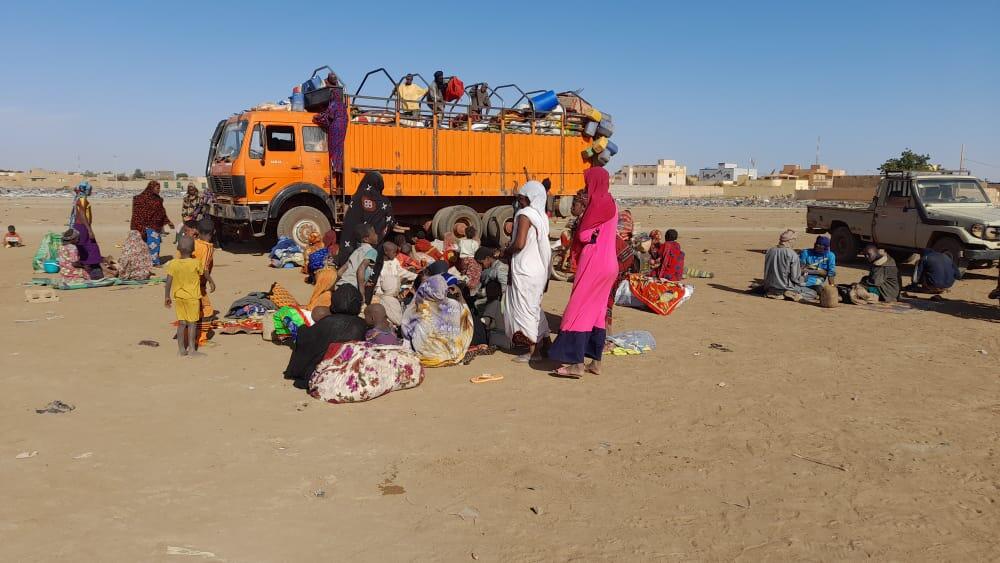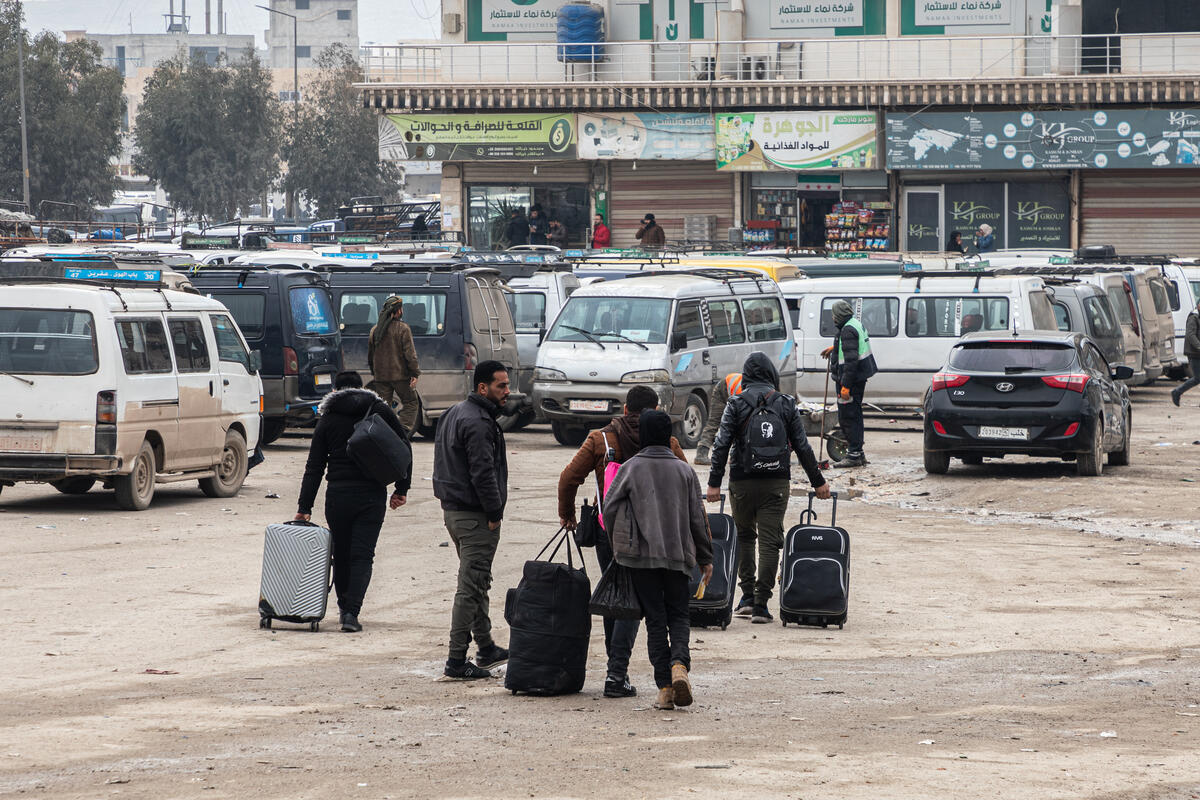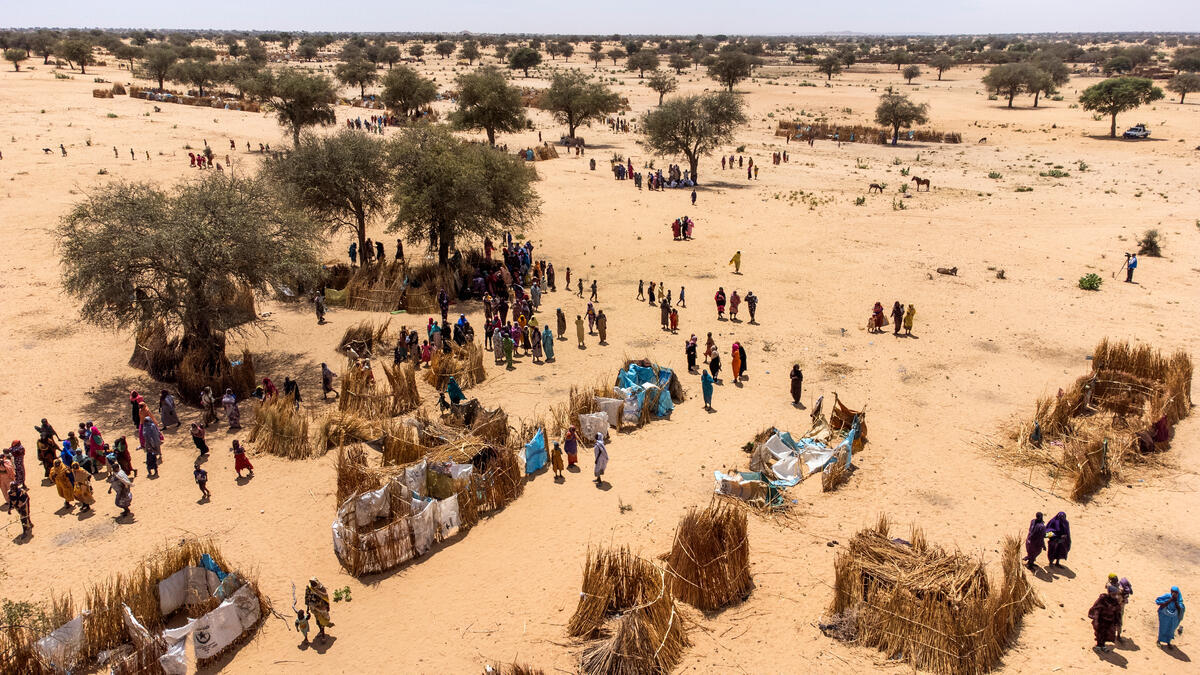UNHCR urges global response to neglected humanitarian crisis in the Sahel
UNHCR urges global response to neglected humanitarian crisis in the Sahel

Displaced families arrive in Gao, Mali, after being forced to flee their homes because of violence.
GENEVA – UNHCR, the UN Refugee Agency, is deeply concerned about the fast-growing humanitarian crisis in the Sahel Region.
In the Central Sahel countries of Burkina Faso, Mali and Niger, over 3.3 million people are forcibly displaced due to relentless conflict, exacerbated by the worsening effects of the climate crisis, according to April 2024 data. This staggering forced displacement of civilians demands immediate international action to prevent it worsening.
The security situation in the Central Sahel is volatile, forcing people to flee their homes in search of safety and protection. Protection risks are widespread. Survey data from the first quarter of 2024 shows that forcibly displaced and host communities perceive thefts, attacks on civilians and gender-based violence as the key risks. Women and children are particularly vulnerable to exploitation, abuse and trafficking.
Furthermore, the lack of adequate shelter, clean water and sanitation exacerbates the dire conditions faced by the displaced while the persistent insecurity prevents many from returning home, often leading to repeated displacement within countries and, increasingly, across borders.
While 2.8 million people have been internally displaced within Burkina Faso, Mali and Niger in the last four years, the number of refugees from these three countries has soared to 550,000 during the same period.
In Burkina Faso, the dual threat of violence and inadequate living conditions is perpetuating a cycle of fragility. Over the past year, the outflow of Burkinabe refugees has been significant, with an estimated 117,600 arrivals in nearby coastal countries as of April 2024.
There are currently over 200,000 Malian refugees in Mauritania, 130,000 in Niger, and nearly 40,000 in Burkina Faso, as well as 50,000 who fled to Algeria but have no access to asylum procedures. At the same time, Mali hosts around 94,000 refugees, mainly from Burkina Faso, Niger, and Mauritania, while grappling with more than 354,000 internally displaced people.
Despite the insecurity and increasing pressures on local communities, neighbouring countries within the Sahel region should be commended for keeping their borders open to refugees.
The increase in cross-border movement underscores the deepening of the crisis and the continued necessity to respond to needs in the Sahel by investing in protection, assistance and durable solutions. Tremendous efforts are being undertaken, yet a lot more needs to be done. UNHCR is advocating with the international community to:
- Maintain aid during political instability in the Sahel region to prevent exacerbating the existing problems and increasing the likelihood of future crises. UNHCR calls for investment in essential protection and social systems, as well as supporting communities before they are forced to move.
- Envisage a joint approach between humanitarian, development and peace actors, while redirecting funds to local organizations actively working on the ground, for a more effective response to needs.
- Plan long-term solutions to provide lifesaving humanitarian assistance while building the resilience of displaced people and host communities.
UNHCR requires $443.5 million to cover urgent humanitarian needs in Burkina Faso, Mali, Niger, Mauritania, and the Gulf of Guinea countries.
Contacts
- In Dakar (regional), Alpha Seydi Ba, baalp@unhcr.org, +221 773 457 454
- In Geneva, William Spindler, spindler@unhcr.org, +41 79 549 59 98







